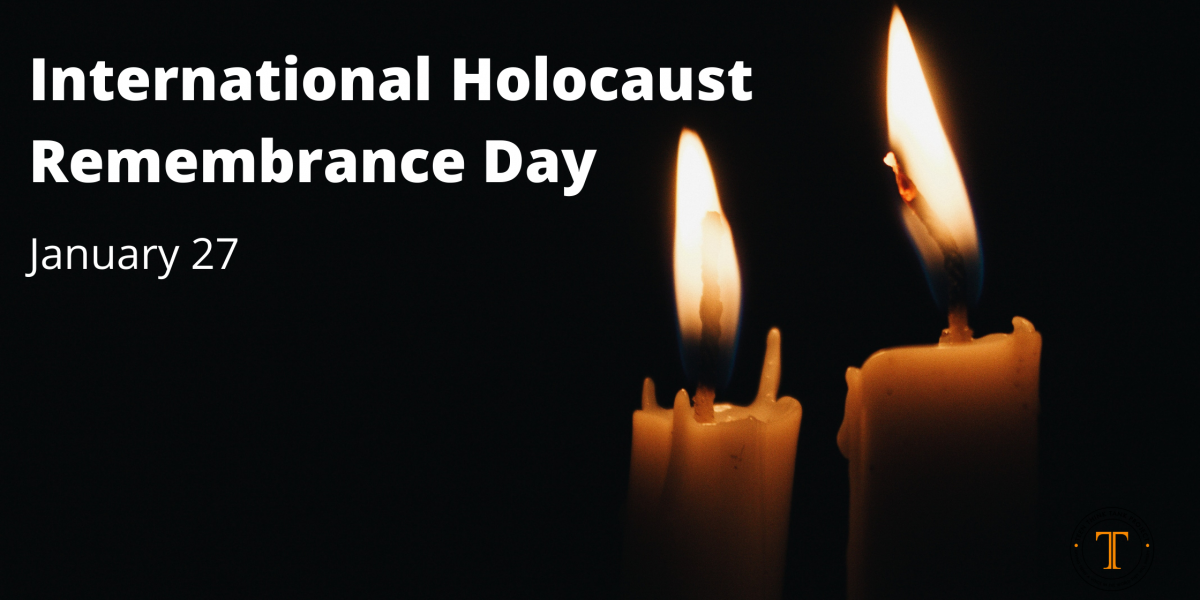Every year, on January 27th, the world pays tribute to the approximately 11 million victims of the Holocaust, over 6 million of whom were Jewish. International Holocaust Remembrance Day marks the liberation of Auschwitz-Birkenau, the largest of the Nazis’ extermination camps where approximately 1.1 million people were systematically murdered. Seventy-seven years after the camp’s liberation in 1945 it is still critical that humanity reflects upon history and remembers the perils of hatred and racism.
The further removed we are from such events, the easier it becomes to dismiss or re-write history. And as more and more members of the Greatest Generation pass on, we lose the voices of the men and women who experienced these horrors and give testament to what happens when antisemitism and ethnic, racial and political hatred fester unchecked.
Since 1945, these hatreds have continued to upend our global community. In the 1990s and early 2000s, genocides collectively killed millions of people in Bosnia, Rwanda, and Sudan. Uyghurs are being persecuted and systematically annihilated in China. The Rohingya are being murdered and displaced in Myanmar. Genocide is unfolding in Ethiopia. And those are just a handful of examples.
Antisemitism is on the rise in Europe and North America and political hatred is reaching a fever pitch on both continents. Vilifying “the other” has become political strategy and when rhetoric turns to violence the politicians stay silent – or worse, they excuse it. Recently, politicians have invoked and manipulated the memory of the holocaust to advance political agendas against Covid-19 measures.
People have long denied, and even idolized, the Holocaust. Former Iranian President Mahmoud Ahmadinejad pushed salacious conspiracy theories that the Holocaust “wasn’t a real event” for his own political gain. Several European and Eastern European governments and politicians have distorted and even denied the facts of the Holocaust. As public figures distort history and engage in discourse that veers further from the truth, we risk future generations growing up without knowledge of these disturbing events in history. As each year passes and we lose more survivors who can attest to the truth we lose the important lessons forged from despair.
As Winston Churchill said in 1945, to paraphrase George Santayana (1905), “those who fail to learn from history are condemned to repeat it.” If we cannot collectively learn the facts of history and reflect upon them to create more efficient policies and definitively act in the face of similar threats, then we are doomed repeat them. For as much as society condemns the Holocaust and agrees to never again allow such horrors to occur again, we have largely stood by and allowed the subsequent horrors of Bosnia, Rwanda and many other conflicts unfold with minimal response.
On International Holocaust Remembrance Day, take time to learn about the history of the Holocaust and anti-Semitism to ensure that the voices of the past will never fall silent. Learn about genocide and ethnic cleaning that continues to exist. Advocate for humanity to keep its promise to never forget and demand intervention for hate and genocide.

Here are some great resources to start building your knowledge.
The United States Holocaust Memorial Museum
Located in Washington D.C., the USHMM offers exhibits and online information about the Holocaust and other genocides.
Holocaust Museum in Houston
Located in Houston, the museum offers both virtual and guided tours, as well as several online resources.
The Anne Frank House (Amsterdam)
The organization manages the home where Anne Frank hid from the Nazis before being discovered and sent to a concentration camp where she died. The Anne Frank House preserves the story of Anne Frank and is located in Amsterdam.
Shake Hands with the Devil: The Failure of Humanity in Rwanda by Roméo Dallaire
Dallaire was the force commander of UNAMIR, the United Nations peacekeeping force in Rwanda. His book is a poignant testimony of the horrors of genocide and the inaction of the global community.
A Problem from Hell: America and the Age of Genocide by Samantha Power
Power was a Balkan War correspondent and founding Executive Director of Harvard’s Carr Center for Human Rights Policy. She is currently the Administrator of USAID.
The Anti-Defamation League (ADL)
The ADL’s mission is to “stop the defamation of the Jewish people, and to secure justice and fair treatment to all.” They fight antisemitism, discrimination, and hate.
History.com
The History channel documents the stories of Holocaust survivors.
The United Nations Office on Genocide Prevention and the Responsibility to Protect
The United Nations has tons of information about the history of genocide, as well as documents and raises awareness about atrocities around the world.



